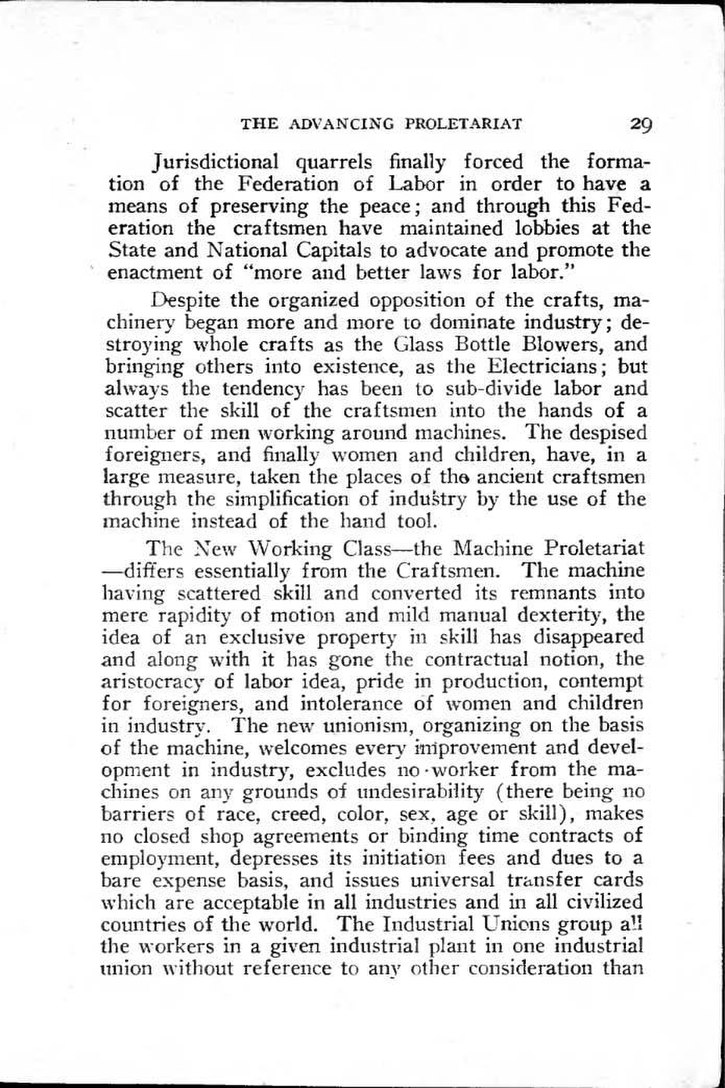Jurisdictional quarrels finally forced the formation of the Federation of Labor in order to have a means of preserving the peace; and through this Federation the craftsmen have maintained lobbies at the State and National Capitals to advocate and promote the enactment of "more and better laws for labor."
Despite the organized opposition of the crafts, machinery began more and more to dominate industry; destroying whole crafts as the Glass Bottle Blowers, and bringing others into existence, as the Electricians; but always the tendency has been to sub-divide labor and scatter the skill of the craftsmen into the hands of a number of men working around machines. The despised foreigners, and finally women and children, have, in a large measure, taken the places of the ancient craftsmen through the simplification of industry by the use of the machine instead of the hand tool.
The New Working Class—the Machine Proletariat—differs essentially from the Craftsmen. The machine having scattered skill and converted its remnants into mere rapidity of motion and mild manual dexterity, the idea of an exclusive property in skill has disappeared and along with it has gone the contractual notion, the aristocracy of labor idea, pride in production, contempt for foreigners, and intolerance of women and children in industry. The new unionism, organizing on the basis of the machine, welcomes every improvement and development in industry, excludes no worker from the machines on any grounds of undesirability (there being no barriers of race, creed, color, sex, age or skill), makes no closed shop agreements or binding time contracts of employment, depresses its initiation fees and dues to a bare expense basis, and issues universal transfer cards which are acceptable in all industries and in all civilized countries of the world. The Industrial Unions group all the workers in a given industrial plant in one industrial union without reference to any other consideration than
